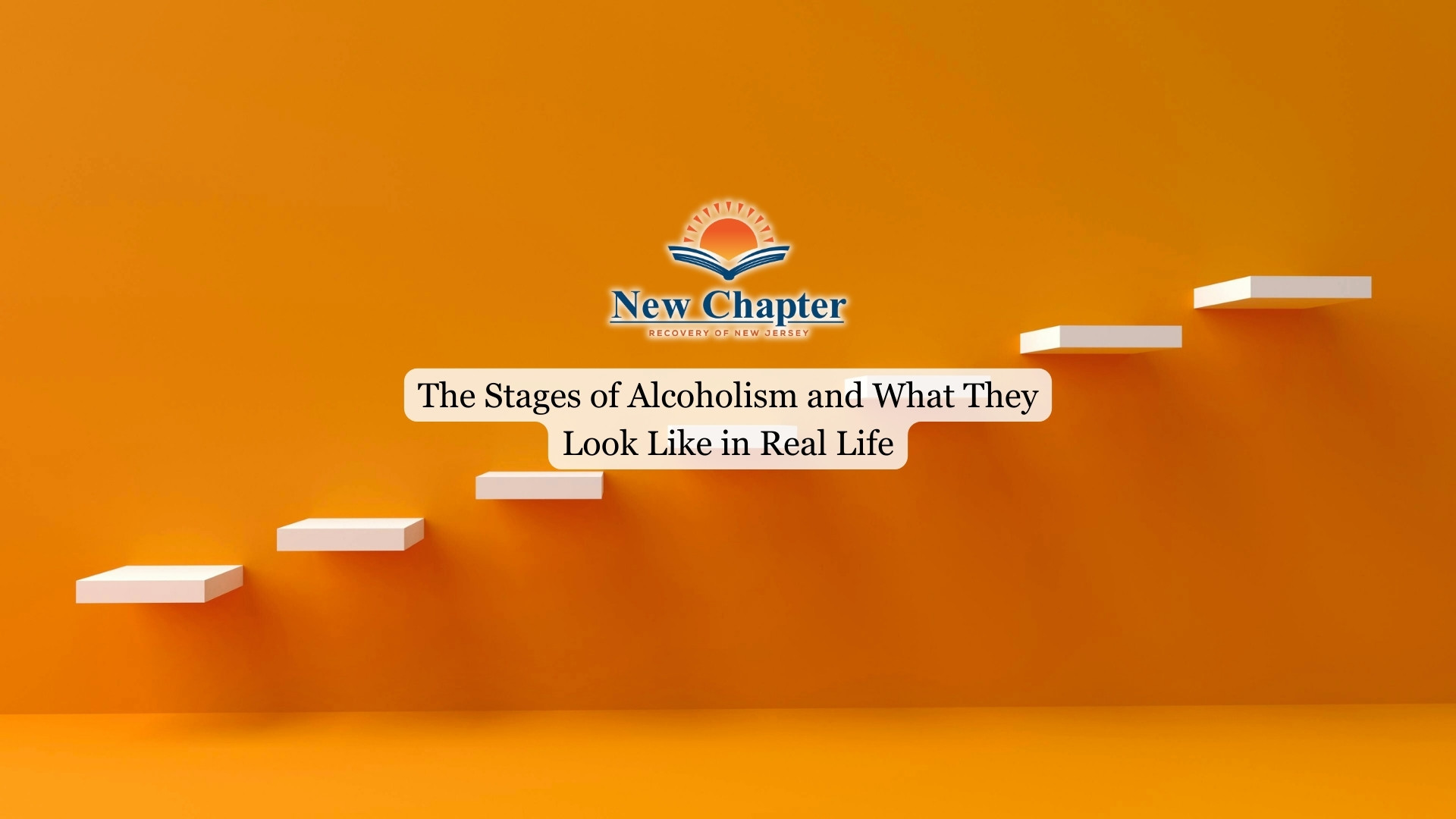The mental toll of withdrawal is profound, with emotional distress and a constant struggle to manage negative thoughts and feelings. The strong desire to return to substance use can cloud judgment and hinder the recovery process.
In addition to these immediate challenges, the long-term impact of cocaine withdrawal reveals the deep and complex nature of addiction. The persistence of symptoms over time can complicate the healing journey, emphasizing the need for continuous support and specialized treatment.

Table of Contents
Toggle- Common Cocaine Withdrawal Symptoms
- Duration of Cocaine Withdrawal Symptoms
- Managing Cocaine Withdrawal Cravings
- Impact on Sleep Patterns
- Seeking Professional Help for Withdrawal
- Final Thoughts From New Chapter Recovery Center
- Frequently Asked Questions
- Can withdrawal symptoms vary depending on the length of time someone has been using cocaine?
- Can individuals go through cocaine withdrawal at home, or is inpatient treatment recommended?
- Can withdrawal symptoms cause long-term emotional or psychological effects?
- How long do cocaine cravings typically last after withdrawal symptoms subside?
Common Cocaine Withdrawal Symptoms
During cocaine withdrawal, individuals commonly experience symptoms such as depression, increased heart rate, and cravings. Depression can manifest intensely, leading to feelings of sadness, hopelessness, and a lack of interest in previously enjoyed activities.
The elevated heart rate observed during this period is a physical adjustment to the absence of cocaine, causing discomfort and anxiety. Cravings for the drug can be challenging to resist, posing a significant obstacle during the withdrawal process.
These symptoms collectively create a demanding environment for individuals undergoing cocaine withdrawal, both emotionally and physically. Seeking support from healthcare professionals, therapy, and support groups is crucial in effectively managing these symptoms.
It’s important to acknowledge that these challenges are temporary, and with proper care and determination, individuals can overcome them and progress towards a healthier, drug-free life.
Duration of Cocaine Withdrawal Symptoms
The onset of cocaine withdrawal symptoms typically occurs within hours after the last use, with a duration that commonly lasts between 3 to 5 days. However, individual variations, such as the extent and duration of cocaine consumption, can influence the duration of withdrawal symptoms. The severity of symptoms can fluctuate during this period, with strong cravings for cocaine being a prevalent challenge. These cravings may persist for weeks to months post-withdrawal, underscoring the importance of a robust support system.
Factors like the individual’s overall health, lifestyle choices, and coping mechanisms can impact the duration and intensity of withdrawal symptoms. While the initial phase may be demanding, emotional stability typically improves over time, usually within a few days to a month following cocaine cessation. Understanding the potential timeline for these symptoms can aid in mental and emotional preparation for the recovery process.
Managing Cocaine Withdrawal Cravings
To manage cravings during cocaine withdrawal effectively, distraction techniques, cognitive-behavioral therapy, and support systems are crucial in resisting urges and maintaining sobriety. Cravings can persist for weeks to months after stopping cocaine use and may be intense, but there are strategies to help cope with them.
Engaging in activities such as exercise, hobbies, or socializing can divert attention from cravings. Cognitive-behavioral therapy aids in identifying triggers and developing coping skills to combat cravings effectively. Seeking support from family, friends, or support groups can offer encouragement and accountability during this challenging period.
It’s important to avoid environments or individuals linked to cocaine use to reduce the intensity of cravings. By implementing these techniques and relying on your support network, you can enhance your ability to manage cravings and progress towards recovery.

Impact on Sleep Patterns
Cocaine withdrawal can have an impact on sleep patterns, leading to disruptions such as insomnia, excessive sleepiness, vivid dreams, or nightmares. Difficulty falling asleep or staying asleep, along with restlessness and fatigue, are common symptoms during this period. These sleep disturbances can significantly affect overall well-being and make the withdrawal process more challenging.
To address these sleep disruptions, it’s important to practice proper sleep hygiene. This includes establishing a calming bedtime routine, avoiding stimulants like caffeine close to bedtime, and creating a comfortable sleep environment. Incorporating relaxation techniques such as deep breathing exercises or meditation before bed may help in calming the mind and improving the chances of getting restful sleep during cocaine withdrawal.
Seeking Professional Help for Withdrawal
Seeking professional help for managing cocaine withdrawal is crucial for ensuring a safe and effective recovery process. Professionals can closely monitor your withdrawal symptoms, administer appropriate medications, and offer psychological support to help you through this challenging period. It’s important to address potential complications such as depression, suicidal thoughts, and intense drug cravings that may arise during withdrawal.
Organizations like Narcotics Anonymous, SMART Recovery, and Cocaine Anonymous can provide additional resources and guidance to support you in your recovery journey. The Substance Abuse and Mental Health Services Administration also offers a confidential helpline for individuals seeking help with cocaine addiction and withdrawal.
Taking the proactive step of seeking professional help significantly improves your chances of overcoming withdrawal symptoms and starting a successful recovery journey. Remember that reaching out for support during this critical time is essential for your well-being.
Final Thoughts From New Chapter Recovery Center
You’ve learned about the common symptoms, duration, and management techniques for cocaine withdrawal.
Remember, seeking professional help is crucial during this challenging time. If you are looking for cocaine addiction treatment in New Jersey, make sure to get in touch with us.
With the right support system and proper care, you can navigate through the cravings, anxiety, and depression that come with withdrawal.
Stay strong, stay focused, and remember that you aren’t alone in this journey towards recovery.
Maybe you know someone who is suffering from cocaine addiction? Learn how you can change their life today:
How to Help Someone Addicted to Cocaine?
Frequently Asked Questions
Can withdrawal symptoms vary depending on the length of time someone has been using cocaine?
Yes, the severity and duration of withdrawal symptoms can vary depending on how long someone has been using cocaine. Longer or more frequent use can lead to more intense withdrawal symptoms, including stronger cravings and longer-lasting emotional distress. Individuals who have been using cocaine for an extended period or at high doses may experience a more challenging withdrawal process.
Can individuals go through cocaine withdrawal at home, or is inpatient treatment recommended?
While some individuals may manage cocaine withdrawal at home with proper support, inpatient treatment is often recommended for those with severe addiction or complicated withdrawal symptoms. Inpatient care provides closer monitoring and access to medical professionals, which can help address physical and psychological issues safely, particularly in cases of severe cravings or co-occurring mental health conditions.
Can withdrawal symptoms cause long-term emotional or psychological effects?
Yes, long-term emotional and psychological effects can result from cocaine withdrawal. Symptoms like anxiety, depression, and irritability can persist long after the physical symptoms subside, potentially affecting mental well-being for months. Ongoing therapy and support groups are crucial to managing these lingering emotional effects during recovery.
How long do cocaine cravings typically last after withdrawal symptoms subside?
Cocaine cravings can persist for weeks to months after withdrawal symptoms subside. The intensity of cravings may decrease over time, but they can still arise sporadically, particularly in response to triggers like stress or environmental cues. Cognitive-behavioral therapy (CBT) and support groups are essential in helping individuals manage and overcome these cravings effectively during long-term recovery.






